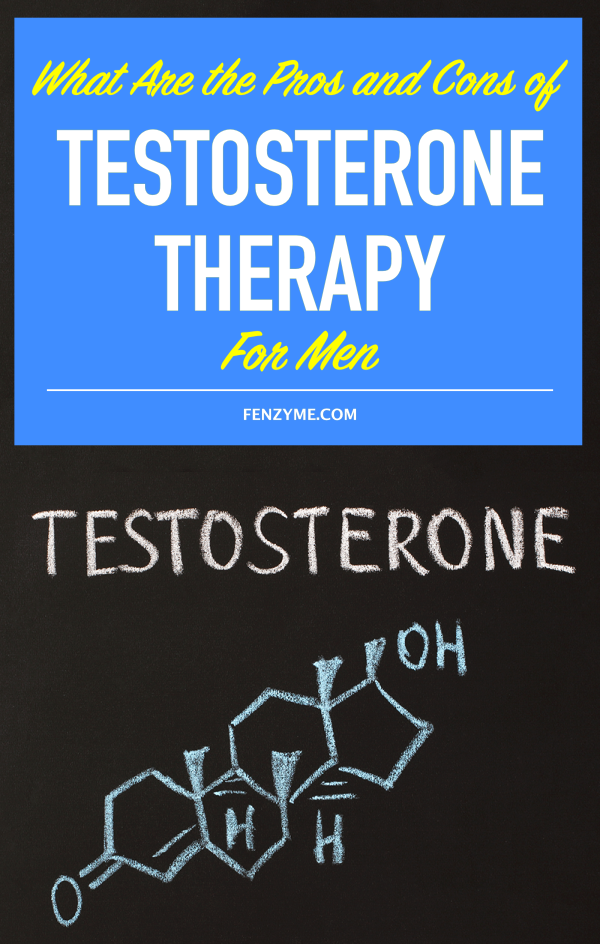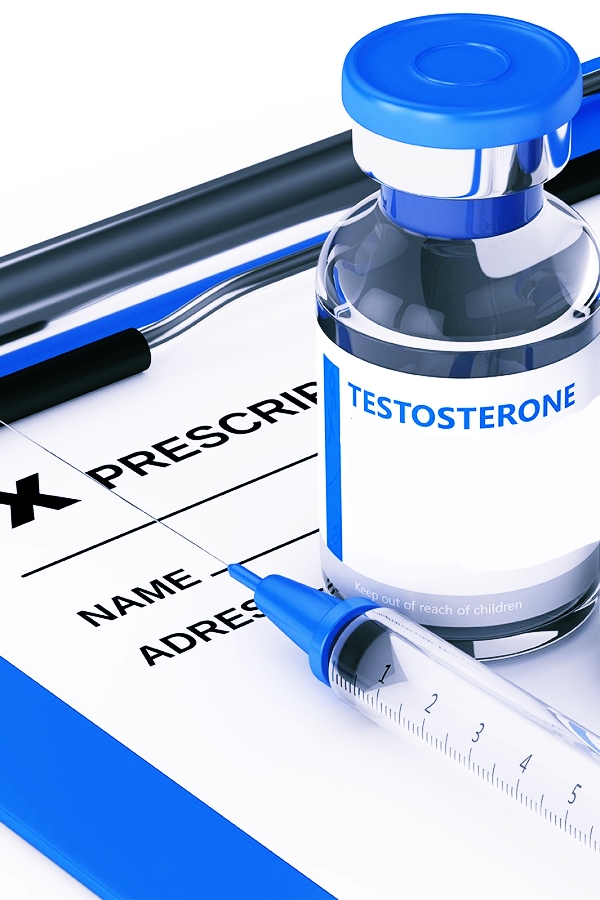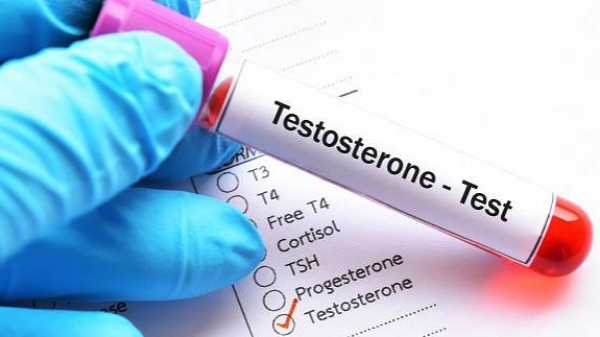What Are the Pros and Cons of Testosterone Therapy For Men?
Low testosterone can have serious detrimental effects on a man’s quality of life. From energy and motivation to sex drive, it’s tough to deal with low T levels, and that makes men think the obvious answer is testosterone replacement therapy.
In some cases, that may be true but it’s also important to understand the risks of testosterone therapy.

Many times a doctor won’t do thorough testing to figure out the true root cause of men’s health issues such as fatigue or low libido. Instead, they’ll give them a testosterone replacement prescription and hope for the best. As a result, there can be not only side effects of the therapy itself, but other serious health problems may be overlooked since they’re attributed to low T.
Normal testosterone limits follow a wide range. Anywhere from 300 to 900 nanograms per deciliter are considered within the normal range. If you fall in that window, you probably won’t benefit from testosterone therapy.

When a man has low levels of testosterone, it’s known as hypogonadism. It could affect millions of men in the U.S. but only around 5% receive treatment.

It’s normal for testosterone to decline as men age as well. You can expect that starting around age 30, your levels will drop around 1% a year.
Pros and Cons of Testosterone Therapy For Men
The following are some of the pros and cons of testosterone therapy to weigh carefully.
The Pros
There are benefits of treating men who have very low testosterone levels. For example, testosterone therapy can renew a man’s interest in sex and help reduce symptoms of sexual dysfunction.
Some studies show links between low testosterone and shorter life expectancy, which is another reason to consider replacement therapy. With that being said, while there are links, researchers aren’t necessarily sure if it’s the low testosterone itself that shortens life expectancy or some other factor.

When a man is given testosterone therapy, it can reduce fat mass and boost muscle mass.
It may help strengthen bones and protect against osteoporosis, and it can also help control blood sugar and keep it within normal range.
Heart health is a serious issue for men and women, and low testosterone can lead to a higher risk of cardiovascular problems.
There’s the potential for testosterone therapy to improve mood and energy levels, and reduce symptoms such as anger and irritability.
The Cons
There may be risks associated with the use of testosterone supplementation, but the research is still fairly unclear in most areas. Some of the mild side effects that can occur include acne and oily skin, as well as low sperm count.
Taking testosterone replacement therapy could put you at an increased risk of developing blood clots, and it can cause testicles to shrink. Sometimes men may develop larger breasts as a result of this therapy.

If you’re on long-term testosterone therapy, you may have a higher risk of cardiovascular issues like heart attack and stroke, although other evidence shows the contrary, as was mentioned above.
Some researchers have found that long-term testosterone therapy can also stimulate the growth of cancerous cells in the prostate.
For a man who has an elevated PSA or is already diagnosed with prostate cancer, it’s probably best not to do testosterone replacement therapy. Most doctors won’t prescribe it to men at high risk of prostate cancer.
Taking testosterone replacement therapy can cause sleep apnea too.
Most of these side effects are rare and can be reversed if a man stops taking testosterone.
The Endocrine Society recommends that along with being at risk for prostate cancer, men who have high hematocrit levels or already have untreated obstructive sleep apnea not take testosterone replacement.
What Else to Know
If you have symptoms of low T, plus your blood work reflects this, you can talk to your doctor about whether or not the benefits of treatment would outweigh the potential risks. There are different ways you can take this type of supplement.
The injection is the traditional way, and it’s relatively inexpensive, but you do have to go into your doctor’s office every few weeks for this.
You can also check out the best male enhancement pills available in the market that can help boost your T levels.
There are also topical therapies such as gels that help you maintain a steady level of testosterone in your body, and you can use them at home.
Regardless of the treatment route you take, you should ensure that you’re checking in with your doctor regularly for blood work and monitoring any possible side effects.
There’s no one right answer for every man as far as testosterone therapy being a good option, but you should be informed and empowered when it comes to your medical care.





